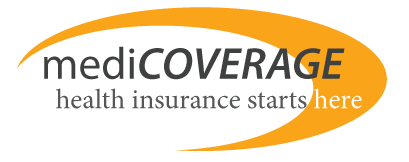Health Insurance for individuals and Families
What are HSAs?
HSA stands for Health Saving Account. HSAs are available with the ObamaCare plans, as long as they are high deductible plans. Congress approved HSAs on December 8, 2003 as a tool for individuals and small businesses to help control health insurance costs. According to former president George W. Bush “health savings accounts are a good deal, and all Americans should consider them ...These accounts will be good for individuals, small business owners and employees ...This will help more American families get the health care they need at a price they can afford.”
Regardless of your politics, HSAs are definitely worth considering:
An HSA is a tax-exempt account established to pay medical expenses and save for retirement. Basically, you can think of them as sort of an IRA that you can also use for medical bills and that will NEVER be taxed even when you retire. Individuals or small businesses with HSAs can invest money tax-free and withdraw it without penalties to pay for medical expenses. Any money/interest that you do not spend on medical bills becomes yours when the policy matures upon retirement.
Who Qualifies for an HSA?
Any individual who purchases a specific, high-deductible health plan offered by a major provider such as Blue Cross, Blue Shield etc. can qualify for an HSA. If you are looking for plans that are HSA-compatiable, just get a quote in the blue box above and look for the plans with the piggy bank icons.
How Does an HSA save money?
High deductible plans usually have a lower monthly premium. If you purchase a high deductible HSA plan, you will save money every month with a lower monthly premium. If you invest the money that you saved in a tax free account, that money earns interest on your behalf. If you never have any medical expenses (like paying a deductible for an operation) you get to keep all that money when it matures. If you need money for medical expenses like office visit co-pays, you can draw upon your HSA with no penalty.
Example:
Family 1 pays $740 monthly in health insurance but has a low $500 deductible.
Family 2 has an HSA eligible plan with a $320 monthly premium and a $5,000 deductible. Family 2 saves $420 per month on premiums, or $5,040 a year.
If family 2 puts $5,000 into a tax-free HSA. Their $5,000 contribution is not taxed so their tax savings is $1,700. Each year, they spend $1,500 on doctor visits and other qualified medical expenses. If the $3,500 they save in the account each year grows at 4 percent annually for 30 years, the family will have accumulated over $200,000 when they retire. Not bad.
How to Purchase an HSA Compatible Health Insurance Plan
Request a quote using our online health insurance quote tool. You will see many options for both HSA plans and traditional plans. Look for the plans with the “piggy bank” icon to select an HSA compatible plan. You can also sort your options so that only HSA plans display on the screen.
